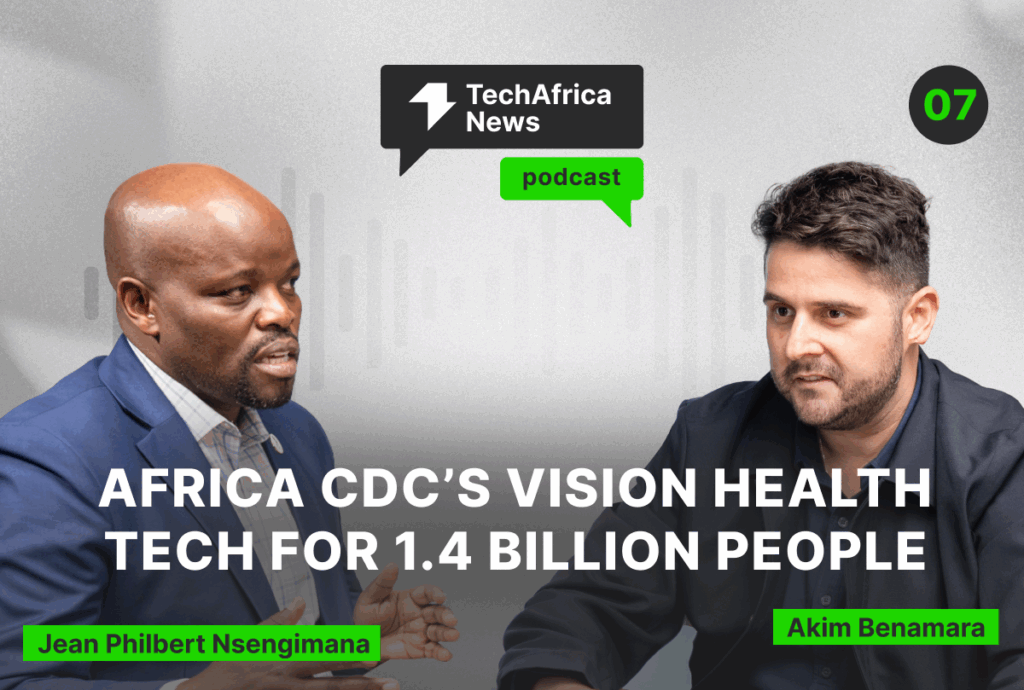Health Tech for 1.4 Billion: Can Africa Lead Its Own Digital Health Future?
Africa’s healthcare systems face significant challenges, including underfunding, infrastructure deficits, and a shortage of skilled health professionals. More than 50% of health facilities lack stable electricity or internet access, and smartphone penetration remains around 30%. Despite these limitations, there is extraordinary potential for growth in digital health technology.

Jean-Philbert Nsengimana, Chief Digital Advisor at the Africa Centres for Disease Control and Prevention (Africa CDC), highlights the need for infrastructure and systems to turn ideas into scalable solutions. “We have no shortage of talent or creativity. What we lack is the infrastructure and the systems to turn ideas into scalable solutions,” he said.
The Untapped Power of Necessity-Driven Innovation
Africa’s healthcare transformation is a demographic and economic imperative. With the continent’s population projected to double by 2050 and a median age under 25, there’s an urgent need to invest in efficient and scalable systems. The continent is brimming with health innovations driven by a youthful population, but scaling these innovations across borders and making them sustainable remains a challenge.
Digital Health’s Promise and Barriers
Digital health tools offer a path to overcoming some of Africa’s toughest health challenges. However, four persistent barriers are holding the sector back: infrastructure gaps, skills shortage, regulatory fragmentation, and limited investment. Nsengimana emphasizes that addressing these barriers is crucial for the growth of HealthTech in Africa.
Telemedicine: The Most Immediate Opportunity
Telemedicine is identified as a key opportunity to expand access to healthcare quickly. During the COVID-19 pandemic, telemedicine usage grew by 300% in Africa, compared to 4,000% in high-income countries. Nsengimana believes investing in telemedicine can accelerate access dramatically and that every African should have a number to call for health advice, referrals, or prescriptions.
AI, Data Sovereignty, and Africa’s Next Leap
Artificial intelligence is reshaping healthcare delivery, from outbreak detection to personalized health predictions. However, it raises critical questions about data control. Building sovereign digital infrastructure, including regional data centers and federated data models, is essential for innovation and privacy.
FinTech’s Playbook: A Model for HealthTech?
Africa’s FinTech success offers a valuable case study for HealthTech. With strategic public-private partnerships and long-term vision, HealthTech could follow a similar trajectory. The focus must be on creating partnerships that align social good with commercial viability.
The Africa CDC and Continental Momentum
The Africa CDC is shifting from pandemic response to a proactive digital health strategy, envisioning a single digital health market with citizen-owned, portable, and interoperable health records across borders. Initiatives like the Africa HealthTech Marketplace are giving vetted startups visibility and credibility.
Toward a HealthTech Renaissance
To achieve Universal Health Coverage by 2030, HealthTech must become a structural pillar, not a peripheral experiment. This transformation must be inclusive, connecting rural clinics, equipping community health workers with mobile tools, and helping remote communities access care via SMS. Africa has the building blocks for a HealthTech renaissance: local talent, growing connectivity, and a new generation of entrepreneurs. What remains is the political, financial, and institutional alignment to turn promise into progress.


